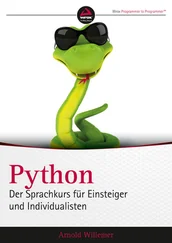Arnold Zable - Cafe Scheherazade
Здесь есть возможность читать онлайн «Arnold Zable - Cafe Scheherazade» весь текст электронной книги совершенно бесплатно (целиком полную версию без сокращений). В некоторых случаях можно слушать аудио, скачать через торрент в формате fb2 и присутствует краткое содержание. Город: Melbourne, Год выпуска: 2001, Издательство: Text Publishing Company, Жанр: Проза, на английском языке. Описание произведения, (предисловие) а так же отзывы посетителей доступны на портале библиотеки ЛибКат.
- Название:Cafe Scheherazade
- Автор:
- Издательство:Text Publishing Company
- Жанр:
- Год:2001
- Город:Melbourne
- ISBN:нет данных
- Рейтинг книги:4 / 5. Голосов: 1
-
Избранное:Добавить в избранное
- Отзывы:
-
Ваша оценка:
- 80
- 1
- 2
- 3
- 4
- 5
Cafe Scheherazade: краткое содержание, описание и аннотация
Предлагаем к чтению аннотацию, описание, краткое содержание или предисловие (зависит от того, что написал сам автор книги «Cafe Scheherazade»). Если вы не нашли необходимую информацию о книге — напишите в комментариях, мы постараемся отыскать её.
Cafe Scheherazade — читать онлайн бесплатно полную книгу (весь текст) целиком
Ниже представлен текст книги, разбитый по страницам. Система сохранения места последней прочитанной страницы, позволяет с удобством читать онлайн бесплатно книгу «Cafe Scheherazade», без необходимости каждый раз заново искать на чём Вы остановились. Поставьте закладку, и сможете в любой момент перейти на страницу, на которой закончили чтение.
Интервал:
Закладка:
"I remember that moment clearly. It was the moment of my first big decision. My first independent decision. Somehow I knew it would be the first of many decisions which would be matters of life and death.
"I decided to go ahead. We stole across the bridge to the village in which the Erlichs were hiding, about five kilometres away. And we returned just in time. Hours later the bridge was blown up and, the next day, the Red Army marched into Pinsk. They also attacked by river, with troops that had sailed all the way from the Black Sea. The city was in chaos.
"I remained in Aaron's house with Erlich. His comrades fetched a barber to cut off his beard. They wanted him to change his appearance. He was in danger from the Bolsheviks, they claimed.
"`From the Bolsheviks I do not hide,` Erlich replied. It wasn't that he trusted them. He was well aware of the purges, the Stalinist terror, the show trials, the Siberian camps. But now that the Red Army was advancing, now that the Nazis were destroying Poland, we would all unite against a common enemy, he reasoned. Whatever has happened in the past, we still come from the same family, the same roots.
"This was also my father's thinking. This is what he told me when
I returned to Vilna weeks later. By then, as he had predicted, the Red Army occupied the city. As in Kiev, two decades earlier, the buildings were draped in red banners, the streets festooned with red flags. My father was about to flee Vilna but when he saw the Bolsheviks marching through the streets he changed his mind.
Surely they would form a united front. After all, they were all revolutionaries, united in a common cause. After all, he had done time in Siberia, on the frozen shores of Lake Baikal."
41
Avram strokes his chin, then brushes a hand across his eyes. He sees armies on the march, villages ablaze. He sees the clash of dictators, the clash of ideas, and the sprouting of tears. The roads of Europe were littered with betrayals. Avram recalls the fierce arguments between Bund comrades. Anna Rosenthal was the leader of the Vilna Bund at the time. "The same legendary Anna who had participated in the `Romanov uprising` of 1904, in eastern Siberia," Avram tells me, with his customary gleam of pride.
"Avramel? Where are you taking us now?" interrupts Masha. "This is another story."
"Yes, it is another story," Avram replies. "But it is important that Martin understands Anna Rosenthal was a woman of great courage, with an honourable past. Someone who would not let down her friends; a woman who, in Tsarist times, had spent years in
Siberian Jails. Yet it was the same Anna Rosenthal who, just after the Bolsheviks marched into Vilna went to the offices of the NKVD, the Soviet secret police, and supplied them with lists of Bund members. She did it in good faith. They were allies, the police assured her. They required the names and addresses so that they could be contacted in times of need. Even then we were still naive.
"A week later, Anna was arrested, as too were many of her comrades. My father was forewarned. A friend had seen his name on the police lists. His arrest was imminent. His comrades urged him to leave with them, immediately.
"`Me? Yankel Zeleznikow? Arrested by the Bolsheviks?`
42 father replied. `So what! I am not afraid of them.`
"He stayed put. And they came at midnight to our apartment on
Benedictinski 4, in the old quarters of Vilna. This had been our home for the past ten Years, our one bit of security after a lifetime on the run. Mother loved the apartment. It was a threestorey building and we lived on the ground floor. We even had a mahogany piano. My sister Basia was a concert pianist. She had graduated from the Vilna conservatory. Music was in the family.
After all, Avram Stock, my mother's father, was once a fiddler, a lifelong player in a klezmer band.
"Have I told you this story? My mother had a brother called
Jonah, who also played the violin; he was a member of the
Leningrad symphony orchestra, but he too disappeared during the
Stalinist purges. Sooner or later, they all disappeared."
"Avramel," interrupts Masha, "where in this bitter world are you taking us now? Please, concentrate at least for a moment on
Benedictinski 4."
"Yes, Benedictinski 4. I grew up with interesting neighbours. In the apartment opposite ours lived Reb Chaim Ozer Grodzinski. The rooms served as the Beth Din, Reb Ozer's rabbinical court. For years they had flocked to him, the believers, to receive his blessings, to sign marriage papers, arrange divorces, resolve squabbles. Reb Ozer sat day after day in a black caftan, stroking his white beard. He would sway from side to side whilst the litigants argued their case.
"He once called upon my father, even though Yankel was an avowed non-believer. This particular case could not be decided 43 by rabbinical law, Reb Ozer told him. It required the help of someone well-versed in the laws of economics, and the demands of the secular world. Yankel was brought in to advise.
"The dispute concerned a factory owner and a worker who claimed he had not been adequately paid. It was a difficult case to decide. Since World War I, Vilna had become a city of great poverty. Beggars wandered the streets in packs. Children ran about in bare feet. The alleys were crowded with hovels where whole families slept on a single mattress or a pile of sacks.
"When Poland absorbed the city in 1920, it was cut off from its pre-war markets in Russia and in countries by the Baltic Sea. So, when it came to manufacturing, there was little money for either owner or worker."
"Avramel!"
"Masha, loz op! It is important that Martin should know that
Vilna was also a city of paupers. This is why there were so many peddlers, selling their rags on its poorer streets. This is why there were so many smugglers and black marketeers. Have I told you this story? There was a man whom everyone called Rasputin. No one seemed to know his real name. He was a giant of a man, with a long black beard, and an unkempt mane of wild hair. He could always be found in Wolfke's, drinking in the outer saloon.
"Like his namesake he was surrounded by many women. He ruled over them like a king. He was not a pimp, but a prince among beggars.
In exchange for looking after them, the women would give him a cut of their earnings.
44
"Rasputin's women roamed the Jewish quarters from sunrise until dusk. Each woman had her territory, her assigned beat. They would go from house to house, through every alley, and, whether you gave them a donation or not, they would always leave you with the same blessing: May you have, and may you give.
"`So why the same blessing?` my father once asked him.
"`Ah! It is a blessing with two very different meanings,`
Rasputin replied. `If you are one of the givers, we bless you so that you should have more, and therefore be able to give more.
And if you do not give, we bless you to have the good fortune to be sick, and be condemned to give out groans.`"
"Tell Martin the story of your father's arrest," exclaims Masha, "or we will go insane."
"They came at midnight," murmurs Avram, "the secret police. They searched our apartment. They interrogated my mother. They arrested my father. But he was well prepared. After all, he was a seasoned revolutionary. He had his overnight bag packed with essentials. He would be back within weeks, he assured us.
"I accompanied him to jail. My father was a heavy smoker. I slipped him several packets of cigarettes. He grasped my hands, kissed me goodbye, and disappeared through the prison gates. I never saw him again.
"Over the years we received reports. Glimpses. Crumbs of information from former comrades who had shared a cell, a prison yard. He had been sighted in a Siberian camp. He had
Читать дальшеИнтервал:
Закладка:
Похожие книги на «Cafe Scheherazade»
Представляем Вашему вниманию похожие книги на «Cafe Scheherazade» списком для выбора. Мы отобрали схожую по названию и смыслу литературу в надежде предоставить читателям больше вариантов отыскать новые, интересные, ещё непрочитанные произведения.
Обсуждение, отзывы о книге «Cafe Scheherazade» и просто собственные мнения читателей. Оставьте ваши комментарии, напишите, что Вы думаете о произведении, его смысле или главных героях. Укажите что конкретно понравилось, а что нет, и почему Вы так считаете.












